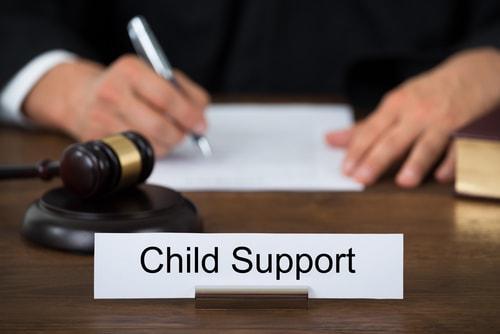Wheaton |
St. Charles |
Sycamore
 630-665-7300
630-665-7300
Recent Blog Posts
What Should I Include in My Illinois Parenting Plan?
 If you are a parent residing in Illinois and you are planning to divorce, you and your child's other parent will need to make decisions about the allocation of parental responsibilities and parenting time. You will have 120 days after you file for divorce to file a proposed parenting plan. If you and your spouse cannot agree on the terms of the plan, the court may need to intervene. There are a number of considerations the parenting plan must contain including decisions about when the child will spend time with each parent, each parent's decision-making authority, and more.
If you are a parent residing in Illinois and you are planning to divorce, you and your child's other parent will need to make decisions about the allocation of parental responsibilities and parenting time. You will have 120 days after you file for divorce to file a proposed parenting plan. If you and your spouse cannot agree on the terms of the plan, the court may need to intervene. There are a number of considerations the parenting plan must contain including decisions about when the child will spend time with each parent, each parent's decision-making authority, and more.
Required Parenting Plan Elements
Parents are encouraged to make as many parenting decisions in advance as possible. The more issues parents work out during the creation of the parenting plan, the less likely they will experience conflict during their post-divorce co-parenting relationship.
Although you may choose to add additional items in your parenting plan, the required elements include:
Considering a Prenuptial Agreement? Avoid These Mistakes
 Although they have long been the subject of misunderstandings, more and more people are choosing to sign a prenuptial agreement before getting married. Prenuptial agreements, or “prenups” for short, are contracts that specify each spouse's property rights and responsibilities in the event of divorce. If you and your partner are considering drafting a prenuptial agreement, you should know that these documents must meet certain criteria in order to be legally-enforceable. Prenuptial agreements that do not meet these specifications or that contain certain mistakes may be considered invalid. This is why it is so important to work with an experienced family law attorney during the creation of any prenuptial agreement.
Although they have long been the subject of misunderstandings, more and more people are choosing to sign a prenuptial agreement before getting married. Prenuptial agreements, or “prenups” for short, are contracts that specify each spouse's property rights and responsibilities in the event of divorce. If you and your partner are considering drafting a prenuptial agreement, you should know that these documents must meet certain criteria in order to be legally-enforceable. Prenuptial agreements that do not meet these specifications or that contain certain mistakes may be considered invalid. This is why it is so important to work with an experienced family law attorney during the creation of any prenuptial agreement.
Incomplete or Falsified Financial Disclosure
When a couple designs a prenuptial agreement, each spouse must be fully forthcoming about his or her assets, income, and debts. A complete inventory of the spouses' finances is needed so that each spouse can make informed decisions about the provisions contained in the agreement. Without a full accounting of each spouse's property and debt, it will be impossible for the couple to form an equitable plan regarding how property and debt should be divided in the event divorce. Furthermore, if the agreement contains incomplete or falsified financial information, it is possible that the document will be considered invalid.
Top Misconceptions About Workplace Sexual Harassment
 The term sexual harassment often garners a strong response, but it is often misunderstood. According to Title VII of the Civil Rights Act of 1964, and other federal and state legislation, it is unlawful for employees to be discriminated against on the basis of their gender. Sexual harassment is one type of sex-based discrimination millions of men and women face every year. Sadly, many victims stay silent about harassment simply because they do not understand their rights.
The term sexual harassment often garners a strong response, but it is often misunderstood. According to Title VII of the Civil Rights Act of 1964, and other federal and state legislation, it is unlawful for employees to be discriminated against on the basis of their gender. Sexual harassment is one type of sex-based discrimination millions of men and women face every year. Sadly, many victims stay silent about harassment simply because they do not understand their rights.
There are a number of common misconceptions that exist regarding sexual harassment including:
Myth 1: Only Women Can Be Victims of Sexual Harassment
Although women experience sexual harassment on a more frequent basis, men can also be sexually harassed. In fact, about one out of every five sexual harassment complaints reported to the Equal Employment Opportunity Commission (EEOC) are filed by men. Men may suffer sexual harassment from both female and male harassers. Many men are hesitant about reporting the harassment because they fear they will not be believed, or they do not realize that the law protects both genders from this unacceptable mistreatment.
How Can I Foster a Positive Relationship with My New Stepchild?
 According to the U.S. Census Bureau, over 50 percent of all American families are remarried or re-coupled, and over 1,000 new stepfamilies are formed every day. Being a stepparent can be a challenging role to fill. The stepparent is an adult authority figure in a child's life but he or she may not have all of the same responsibilities as a biological parent. The path of a stepparent will undoubtedly be filled with obstacles; however, a happy, healthy stepparent-stepchild relationship is possible. If you are a stepparent hoping to have a strong relationship with your new stepchild, read on to learn tips experts say can help.
According to the U.S. Census Bureau, over 50 percent of all American families are remarried or re-coupled, and over 1,000 new stepfamilies are formed every day. Being a stepparent can be a challenging role to fill. The stepparent is an adult authority figure in a child's life but he or she may not have all of the same responsibilities as a biological parent. The path of a stepparent will undoubtedly be filled with obstacles; however, a happy, healthy stepparent-stepchild relationship is possible. If you are a stepparent hoping to have a strong relationship with your new stepchild, read on to learn tips experts say can help.
Develop Healthy Boundaries
It is important to realize that stepparents typically do not fulfill the same role in a child's life as the biological parent does. The younger stepchildren were when their biological parent married the stepparent, the more likely the children are to view the stepparent the same as their biological parent. When stepparents enter an older child or teenager's life, it can be harder for the stepparent to figure out where he or she fits in. Experts say that one of the best ways to avoid conflict and develop a close relationship with your stepchild is to develop healthy boundaries. Do not attempt to take the place of the child's biological parent or immediately become the main disciplinarian in the child's life. With time, you may choose to take on more of an authoritative role in the family, but doing so too soon can backfire.
What Should I Expect During an Illinois Adoption Home Study?
 Adopting a child is one of the most worthwhile legal pursuits a person can undergo. Unfortunately, the Illinois adoption process can, at times, be complicated and tedious. One step in the adoption process that many adoptive families worry about is the home study. The purpose of an adoption home study is to ensure that the adoptive home is a safe, loving environment for the child to live in. Many adoptive parents are intimidated at the thought of someone coming to evaluate them and their home. They may worry that they will be deemed “not good enough” and denied the adoption. One of the best ways to prepare for your home study and gain peace of mind is to thoroughly educate yourself about what the adoption home study process entails.
Adopting a child is one of the most worthwhile legal pursuits a person can undergo. Unfortunately, the Illinois adoption process can, at times, be complicated and tedious. One step in the adoption process that many adoptive families worry about is the home study. The purpose of an adoption home study is to ensure that the adoptive home is a safe, loving environment for the child to live in. Many adoptive parents are intimidated at the thought of someone coming to evaluate them and their home. They may worry that they will be deemed “not good enough” and denied the adoption. One of the best ways to prepare for your home study and gain peace of mind is to thoroughly educate yourself about what the adoption home study process entails.
Common Elements of a Home Study
The steps that you must take in order to be granted an adoption will depend on whether you are pursuing an international adoption, private adoption, agency adoption, relative adoption, or adoption through the foster care system. Although the adoption process varies significantly, most home studies involve the same basic steps. The agent, social worker, or other individual conducting the home study is seeking to understand two main things:
McDonald's Faces $500 Million Sexual Harassment Class Action Lawsuit
 In 1964, congress passed the Civil Rights Act which prohibits employment discrimination based on sex, religion, national origin, or race. In 1980, the Equal Employment Opportunity Commission (EEOC) specified that sexual harassment is considered a form of sex discrimination prohibited by the Civil Rights Act. Although workplace sexual harassment has been against the law for 30 years, many believe that the issue has never been taken as seriously as is has in recent years. Spurred by the social media #MeToo movement and a number of other events, more and more women and men are coming forward and reporting sexual harassment. Now, one of the biggest companies in the world is facing a major lawsuit regarding alleged systemic sexual harassment.
In 1964, congress passed the Civil Rights Act which prohibits employment discrimination based on sex, religion, national origin, or race. In 1980, the Equal Employment Opportunity Commission (EEOC) specified that sexual harassment is considered a form of sex discrimination prohibited by the Civil Rights Act. Although workplace sexual harassment has been against the law for 30 years, many believe that the issue has never been taken as seriously as is has in recent years. Spurred by the social media #MeToo movement and a number of other events, more and more women and men are coming forward and reporting sexual harassment. Now, one of the biggest companies in the world is facing a major lawsuit regarding alleged systemic sexual harassment.
Workers Claim McDonald's Does Not Take Enough Action to Address Sexual Harassment
Recently, McDonald's staff in Florida announced that they were filing a $500 million sexual harassment lawsuit against the fast food chain. The two women named in the lawsuit have filed the suit on behalf of the 5,000 women who work at the Florida restaurants. They claim that many staff are subject to sexual and derogatory comments, jokes, and even physical assaults.
Should I Ask for a Guardian ad Litem to be Appointed?
 “The best interests of the child” is one of the most common phrases in the realm of family law. A child's well-being, of course, should remain among the top priorities in proceedings for divorce, allocation of parental responsibilities, parenting time, non-parent visitation, and adoption. The challenge, however, is that determining what exactly constitutes a child's best interests is open to interpretation. As such, each parent may fully believe that they are acting in their child's best interests yet hold vastly different objectives regarding the outcome of the case.
“The best interests of the child” is one of the most common phrases in the realm of family law. A child's well-being, of course, should remain among the top priorities in proceedings for divorce, allocation of parental responsibilities, parenting time, non-parent visitation, and adoption. The challenge, however, is that determining what exactly constitutes a child's best interests is open to interpretation. As such, each parent may fully believe that they are acting in their child's best interests yet hold vastly different objectives regarding the outcome of the case.
Helping the Process
When you and your child's other parent cannot agree on a parenting plan or other arrangements regarding your child, the court is likely to offer several options. To start with, you may be required to participate in court-ordered mediation designed to help you and the other parent reach an agreement with the help of a third-party mediator. Mediation, however, is only possible in situations where both parties are willing and able to work constructively with one another.
Tips for Helping Children Cope During the Coronavirus Pandemic
 Across the world, peoples' lives have been turned upside down by fears over the coronavirus. Events have been cancelled, restaurants are not allowing customers to dine in, and schools are closed. Although these changes are difficult for everyone, children may have an especially hard time coping. Children's anxieties about what's going on in the world may be especially intensified if they are also coping with their parents' divorce or other family law-related disputes. Fortunately, there are many steps that parents can take to reassure their children and help them deal with their fears and anxieties.
Across the world, peoples' lives have been turned upside down by fears over the coronavirus. Events have been cancelled, restaurants are not allowing customers to dine in, and schools are closed. Although these changes are difficult for everyone, children may have an especially hard time coping. Children's anxieties about what's going on in the world may be especially intensified if they are also coping with their parents' divorce or other family law-related disputes. Fortunately, there are many steps that parents can take to reassure their children and help them deal with their fears and anxieties.
Keep Regular Routines
Not going to school or extracurricular activities may seem like a vacation at first, but many children quickly grow tired of staying at home isolated from their friends and schoolmates. Children may also have significant fears about the virus itself. They may worry for their own safety as well as the safety of their parents or grandparents. One way to help children feel more secure is to keep your routines as normal and predictable as possible. Keeping a consistent bedtime, morning routine, household chore schedule, and other routines will help the children establish a sense of normalcy.
What Should I Do If My Child's Other Parent is Not Paying Child Support?
 If you are a single parent, you know just how hard it can be to manage child-rearing expenses on your own. In Illinois, both parents are responsible for the costs associated with raising a child – even if those parents who are divorced or never married. Child support is typically paid by the parent with less parenting time to the parent with more parenting time in order to share child-related costs between parents. Unfortunately, some parents do not take their child support obligation seriously. They skip payments, do not pay in full, or they use excuse after excuse to avoid financial responsibility. If your child's other parent is neglecting his or her child support obligation, a family law attorney can help.
If you are a single parent, you know just how hard it can be to manage child-rearing expenses on your own. In Illinois, both parents are responsible for the costs associated with raising a child – even if those parents who are divorced or never married. Child support is typically paid by the parent with less parenting time to the parent with more parenting time in order to share child-related costs between parents. Unfortunately, some parents do not take their child support obligation seriously. They skip payments, do not pay in full, or they use excuse after excuse to avoid financial responsibility. If your child's other parent is neglecting his or her child support obligation, a family law attorney can help.
Only Court-Ordered Child Support Payments are Enforceable
Some parents assume that they do not need to get a formal child support order from the court. They may think that establishing child support through the court is a waste of time and that they can simply agree on a child support arrangement casually. Unfortunately, the court has no authority to enforce “handshake” agreements for child support. This is why it is crucial for single parents to file an official petition for child support with the court. If you are a mother who is seeking child support from a father who is not listed on the child's birth certificate, you may need to establish legal paternity before you are eligible for child support.
How Will Infidelity Affect an Illinois Divorce?
 Marriages end for countless reasons. Sometimes, a married couple decides to divorce because one of the spouses has had an affair. Studies show that about 20 percent of men and 13 percent of women admit to cheating on their spouse during their marriage. If you are in this situation, you may wonder whether infidelity will influence your divorce proceedings. The answer will likely depend on your particular set of circumstances.
Marriages end for countless reasons. Sometimes, a married couple decides to divorce because one of the spouses has had an affair. Studies show that about 20 percent of men and 13 percent of women admit to cheating on their spouse during their marriage. If you are in this situation, you may wonder whether infidelity will influence your divorce proceedings. The answer will likely depend on your particular set of circumstances.
The Elimination of Fault-Based Divorce in Illinois
When a couple gets a divorce, the petitioner, or person requesting the divorce, must list the “grounds” or reasons for the divorce. In the past, Illinois allowed spouses to list fault-based grounds such as adultery, abandonment, or physical or mental cruelty as the reason for the divorce. However, all fault-based grounds have since been eliminated. Anyone seeking a divorce in Illinois must only prove that “irreconcilable differences” have caused the breakdown of the marriage and that efforts at reconciliation are not in the couple's best interests. This means that a spouse's adultery will not be listed as the reason for the divorce. However, this does not mean that adultery will not impact any divorce proceedings.


 Read More
Read More





